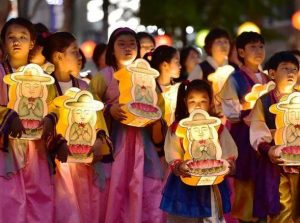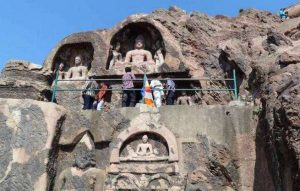
Japan is experiencing a surge in sales of temples and shrines, raising concern among government officials and religious communities about the intentions of prospective buyers. Buddhist temples, some of which are centuries old, are increasingly being targeted not for their religious or cultural significance but for the tax benefits that come with owning a religious property.
Benmou Suzuki, a Buddhist monk at the 420-year-old Mikaboyama Fudoson temple in a remote mountain village in Gunma Prefecture, 100 kilometers northwest of Tokyo, said he was recently approached by two men claiming to be real estate brokers. They had inquired whether Suzuki would be interested in selling his temple. Suzuki expressed suspicion that their interest had less to do with the temple itself and more to do with the tax exemptions tied to religious properties.
“There are people out there who want a temple, even a mountain temple like this,” Suzuki said. “Considering the value of the religious corporation status, this temple could fetch quite a lot of money.” (Reuters)
Japan’s declining population and waning interest in religion have left many temples struggling to survive. Rural areas, such as Sanbagawa, where Suzuki’s temple is located, have seen a steady fall in residents. Sanbagawa is home to only 500 people, yet it has three Buddhist temples, a Shinto shrine, and a church. As donations from religious devotees dwindle, many temples and shrines face challenges to maintain their properties.
According to Japan’s Agency for Cultural Affairs, there are approximately 180,000 religious sites registered as religious corporations across the country. However, a growing number are inactive, meaning they have not held religious services for more than a year. Inactive corporations rose by a third to more than 4,400 by the end of 2023. This has led to concern that religious properties are being sold for non-religious purposes.
The ownership of religious sites confers significant tax advantages. Businesses operating under a religious corporation that provides services such as funerals are exempt from paying taxes. Other businesses, such as restaurants or hotels that operate on religious property, can also benefit from lower tax rates. As a result, these properties are becoming attractive to buyers interested in evading taxes or even engaging in money laundering.
Cases of temple or shrines being repurposed for commercial development have sparked public outrage. In Osaka, a temple sold in 2020 was demolished, with dozens of graves relocated to make way for a new property development. A similar case in Kyoto, where a temple was turned into a parking lot, also made headlines.
The Agency for Cultural Affairs has stepped up efforts to address these concerns. Last year, 17 religious corporations were voluntarily dissolved, and six were ordered to dissolve. The agency expects these numbers to rise as it intensifies scrutiny of inactive religious sites. When major earthquakes strike, which often damage temples and shrines, agency officials visit affected areas to warn religious groups about the risks of selling to questionable buyers.
An Osaka-based broker specializing in the sale of religious properties, Takao Yamamoto, told the Reuters news agency that interest in purchasing temples and shrines had been surging. Some religious sites, especially those with profitable graveyards, were being advertised for millions of dollars. He also noted that foreign buyers, particularly from China, had shown increasing interest in acquiring these properties.
“A religious corporation license alone can fetch 30 million yen (US$210,000),” Yamamoto said. “Anyone can buy independent sites as long as you have the money . . . even foreigners can buy them.” (VOA)
Despite the growing interest in these sales, some religious leaders, such as Suzuki, remain committed to preserving their temples. Suzuki emphasized that he had no intention of selling and was instead working on ways to raise funds to maintain his temple. “Temples are places for local people to gather and forge connections. We just can’t get rid of them,” he said. (VOA)
Japan’s constitution guarantees religious freedom, making it difficult for the government to impose stricter regulations on the sale of religious properties. Changing the laws governing the purchase of religious sites could be seen as infringing on these constitutional rights, a concern that has made officials hesitant to take further legislative action. As Japan faces these challenges, the future of its temples and shrines remains uncertain. While efforts are being made to curb bad-faith purchases, the demand for religious properties continues to grow, with buyers eyeing the financial benefits over the spiritual significance.
See more
As sales of Japan temples and shrines surge, a crackdown on bad-faith buyers (Reuters)
Japan cracks down on bad-faith buyers as temple, shrine sales surge (VOA)
Related news reports from BDG
Japanese Zen Monk to Bring Innovative Buddhist Music to Taiwan
Tendai Buddhist Priest Accused of Abuse in Japan
Court Orders Stolen Buddhist Statue in South Korea to be Returned to Japan
Japan’s Koyasan Temple Complex Hosts Two-Month Celebration of Buddhism and Art
Historic Japanese Temple Allegedly Vandalized by Canadian Teen
Weekly Toyo Keizai: Buddhism Facing a “Life or Death Struggle” in Japan












